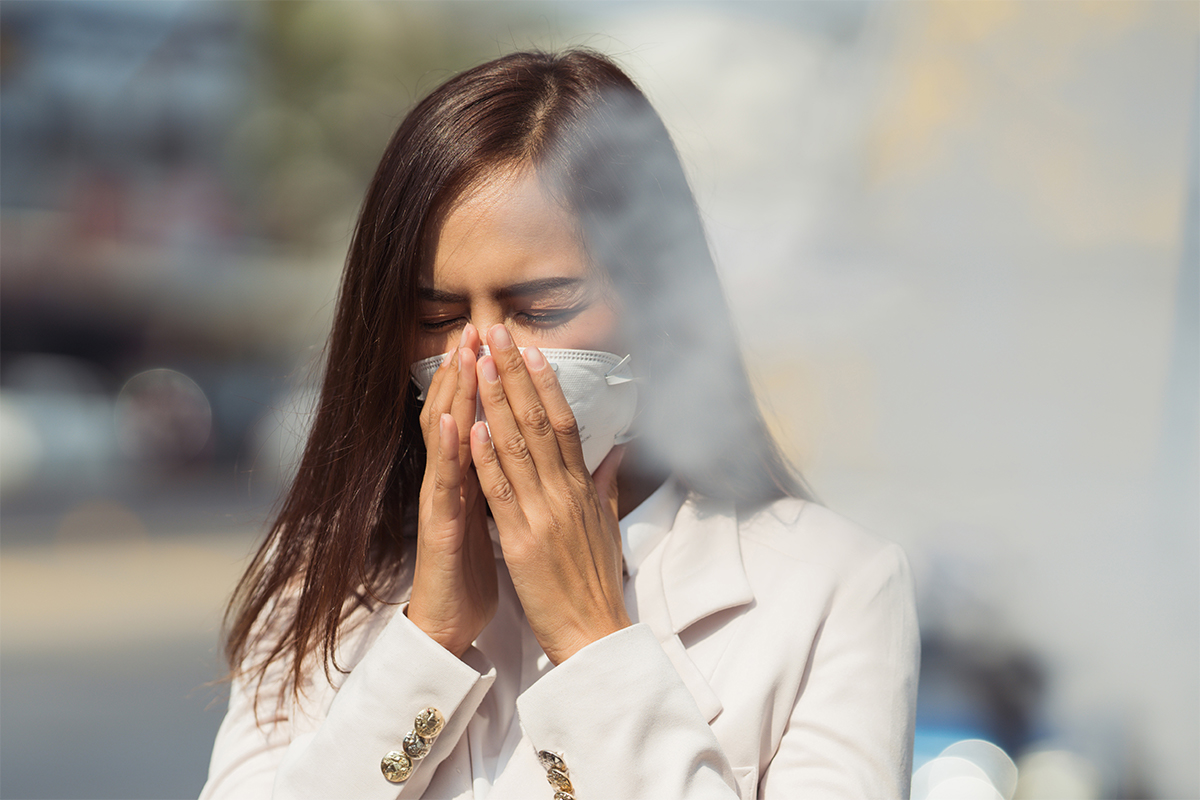Dr. Don Garcia: After the Fires: Beware of Respiratory and Mental Health

This past Friday, January 17, the Pasadena Public Health Department reported an outbreak of the gastrointestinal Norovirus at the American Red Cross’ Pasadena Evacuation Shelter that houses Eaton Fire victims who lost their homes or were forced to evacuate.
The Health Department confirmed three people at the shelter tested positive for the virus among a cluster of 28 people suffering from acute gastrointestinal illness.
Stomach illnesses, caused by contaminated food and water and a lot of people congregating in close quarters, are common after natural disasters.
The recent fires that ravaged large portions of Pacific Palisades and Altadena, burning thousands of homes and structures, and leaving a trail of death and destruction, also pose other risks. Officials and health experts also warn about respiratory problems from the toxic chemicals left in the debris and the particles in the air, as well as the trauma caused by the loss of loved ones and possessions. These issues pose a danger to those directly impacted by the fires and those miles away.
“The effects go far because particulate matter is carried out from the main area (of the fires),” says Dr. Don Garcia, Chief Medical Officer at Clínica Romero. “You should pay attention to that information on the air quality maps.”
Air heavy with ash and smog from the flames and debris can seriously affect people’s health.
“With the smoke inhalation, it can irritate your lungs,” Dr. Garcia says. “If you have a history of asthma, COPD (Chronic Obstructive Pulmonary Disease, a progressive lung disease that makes it difficult to breathe), emphysema, it could worsen those conditions.”
Dr. Garcia also notes that smoke inhalation and an air heavy with particles and other things “can put a stress on you if you have cardiac problems.”
“It can cause eye problems and allergy-type of symptoms,” he adds.
Destroyed structures hide several toxic chemicals that can pose safety and health risks. If you’re exposed to them, they can also cause skin problems.
Preferably, people should stay away from burned areas until authorities determine that it’s safe to return. And when you do, Dr. Garcia emphasizes the proper use of an N95 mask (not a regular one). “You need something that prevents toxins from getting into your lungs,” he says.
Exposure to these zones should be as minimal as possible because “you’re being exposed to all the chemicals in the air and the environment there.”
“You should avoid it unless it’s very necessary,” he says.
Children, the elderly, and those with chronic conditions are especially susceptible, though it varies on a person’s health.
MENTAL HEALTH
Equally important is to care for your mental health.
“This is traumatic. We’re concerned about PTSD (Post Traumatic Stress Disorder). It can cause people a lot of anxiety, panic and depression,” Dr. Garcia says.
“For people with ongoing mental health conditions, it could worsen them or put them over the edge. Or it could put them in acute exacerbation.”
Fires, he says, impact our sense of safety and belonging.
“It’s also a time of mourning and grieving. When you lose possessions such as a home, especially if it’s passed from one generation to the next, it impacts family history and family heirlooms and memories, all the things we keep in our home as a treasure for the next generation,” Dr. Garcia says.
Any changes to your daily habits and social interactions, uncontrollable crying, isolation, and mental instability should be signs of trouble.
He recommends seeing an evaluation and mental health screening to help assist and understand that they may be experiencing panic attacks, depressions, grieving and mourning.
Clínica Romero has a Behavioral Health department consisting of bilingual licensed therapists and students from social work and Psychiatry services who work with each patient individually to tailor the most beneficial treatment for them. Their resources include individual and group counseling classes, psychiatry services and family therapy, among others.
Clínica Romero Behavioral Health Department
(213) 989-7700 Ext. 2761
PROTECTING YOUR HEALTH AFTER THE FIRES
*If you’re outside, wear an N95 or P100 mask that properly covers your entire nose
*If you are doing any cleaning in burn areas, wear gloves, safety goggles, and heavy shoes that protect against cuts and debris
*If you get ash on your skin, in your eyes, or in your mouth, wash it off
*People with respiratory and heart conditions should limit exposure outside
*Pay attention to air quality notices
*Seek medical attention if you experience any chest pain, difficulty breathing or eye irritation
*Consider talking to a therapist if you notice any changes to your social interactions or behavior

